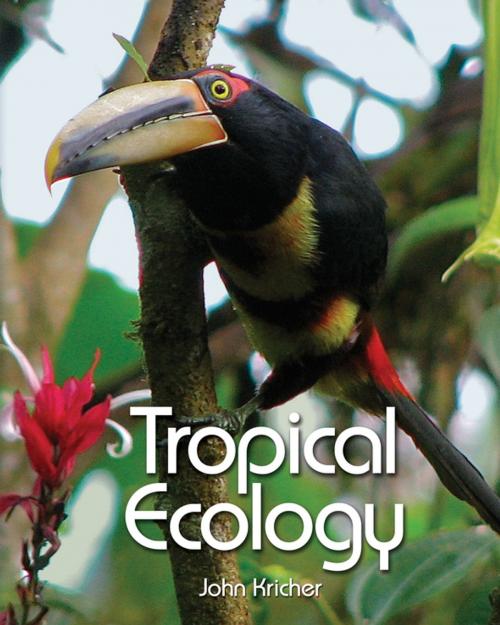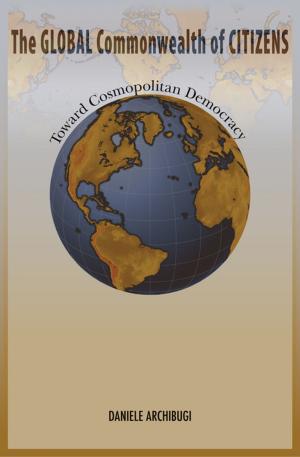Tropical Ecology
Nonfiction, Science & Nature, Science, Biological Sciences, Ecology, Nature, Environment| Author: | John Kricher | ISBN: | 9781400838950 |
| Publisher: | Princeton University Press | Publication: | February 28, 2011 |
| Imprint: | Princeton University Press | Language: | English |
| Author: | John Kricher |
| ISBN: | 9781400838950 |
| Publisher: | Princeton University Press |
| Publication: | February 28, 2011 |
| Imprint: | Princeton University Press |
| Language: | English |
This full-color illustrated textbook offers the first comprehensive introduction to all major aspects of tropical ecology. It explains why the world's tropical rain forests are so universally rich in species, what factors may contribute to high species richness, how nutrient cycles affect rain forest ecology, and how ecologists investigate the complex interrelationships among flora and fauna. It covers tropical montane ecology, riverine ecosystems, savanna, dry forest--and more.
Tropical Ecology begins with a historical overview followed by a sweeping discussion of biogeography and evolution, and then introduces students to the unique and complex structure of tropical rain forests. Other topics include the processes that influence everything from species richness to rates of photosynthesis: how global climate change may affect rain forest characteristics and function; how fragmentation of ecosystems affects species richness and ecological processes; human ecology in the tropics; biodiversity; and conservation of tropical ecosystems and species.
Drawing on real-world examples taken from actual research, Tropical Ecology is the best textbook on the subject for advanced undergraduates and graduate students.
- Offers the first comprehensive introduction to tropical ecology
- Describes all the major kinds of tropical terrestrial ecosystems
- Explains species diversity, evolutionary processes, and coevolutionary interactions
- Features numerous color illustrations and examples from actual research
- Covers global warming, deforestation, reforestation, fragmentation, and conservation
- The essential textbook for advanced undergraduates and graduate students
- Suitable for courses with a field component
Leading universities that have adopted this book include:
- Biola University
- Bucknell University
- California State University, Fullerton
- Colorado State University - Fort Collins
- Francis Marion University
- Michigan State University
- Middlebury College
- Northern Kentucky University
- Ohio Wesleyan University
- St. Mary's College of Maryland
- Syracuse University
- Tulane University
- University of California, Santa Cruz
- University of Central Florida
- University of Cincinnati
- University of Florida
- University of Missouri
- University of New Mexico
- University of North Carolina at Chapel Hill
- University of the West Indies
This full-color illustrated textbook offers the first comprehensive introduction to all major aspects of tropical ecology. It explains why the world's tropical rain forests are so universally rich in species, what factors may contribute to high species richness, how nutrient cycles affect rain forest ecology, and how ecologists investigate the complex interrelationships among flora and fauna. It covers tropical montane ecology, riverine ecosystems, savanna, dry forest--and more.
Tropical Ecology begins with a historical overview followed by a sweeping discussion of biogeography and evolution, and then introduces students to the unique and complex structure of tropical rain forests. Other topics include the processes that influence everything from species richness to rates of photosynthesis: how global climate change may affect rain forest characteristics and function; how fragmentation of ecosystems affects species richness and ecological processes; human ecology in the tropics; biodiversity; and conservation of tropical ecosystems and species.
Drawing on real-world examples taken from actual research, Tropical Ecology is the best textbook on the subject for advanced undergraduates and graduate students.
- Offers the first comprehensive introduction to tropical ecology
- Describes all the major kinds of tropical terrestrial ecosystems
- Explains species diversity, evolutionary processes, and coevolutionary interactions
- Features numerous color illustrations and examples from actual research
- Covers global warming, deforestation, reforestation, fragmentation, and conservation
- The essential textbook for advanced undergraduates and graduate students
- Suitable for courses with a field component
Leading universities that have adopted this book include:
- Biola University
- Bucknell University
- California State University, Fullerton
- Colorado State University - Fort Collins
- Francis Marion University
- Michigan State University
- Middlebury College
- Northern Kentucky University
- Ohio Wesleyan University
- St. Mary's College of Maryland
- Syracuse University
- Tulane University
- University of California, Santa Cruz
- University of Central Florida
- University of Cincinnati
- University of Florida
- University of Missouri
- University of New Mexico
- University of North Carolina at Chapel Hill
- University of the West Indies















